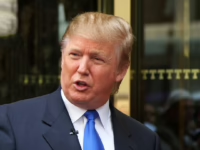John Bolton, former national security adviser, addressing an audience at Duke University in Durham, N.C., on February 17, 2020.
Logan Cyrus/AFP via Getty Images
hide caption
toggle caption
Logan Cyrus/AFP via Getty Images
John Bolton, who held the position of national security adviser during the initial term of President Trump and later became a prominent critic, was formally charged on Thursday with 18 counts concerning the improper handling of classified materials.
The indictment, filed in a Maryland federal court, accuses Bolton of eight counts related to the unauthorized transmission of national defense information and ten counts involving the illegal retention of such sensitive data. Each charge carries a potential prison sentence of up to ten years.
According to the Department of Justice, Bolton unlawfully shared classified intelligence through personal email accounts and messaging platforms. This information included sensitive U.S. intelligence on anticipated attacks, foreign adversaries, and diplomatic relations.
Attorney General Pamela Bondi emphasized the principle of equal justice, stating, “No individual is above the law. Those who misuse their authority and threaten our national security will face consequences.”
The charges follow an FBI search of Bolton’s residence near Washington, D.C., conducted approximately two months ago. During the search, agents reportedly seized documents marked as classified, some referencing weapons of mass destruction.
Bolton’s tenure in the Trump administration lasted just over a year during the president’s first term. Since leaving office, he has been an outspoken critic of Trump, expressing concerns that the president intended to use the Department of Justice as a tool for political retaliation.
The inquiry into Bolton’s handling of classified information began prior to Trump’s re-election campaign.

Following his departure from the White House, Bolton was among several former officials whose security clearances were revoked by Trump upon his return to office. Additionally, Bolton’s security detail, which had been assigned due to threats from Iran, was also withdrawn.
In 2020, Bolton released his memoir, The Room Where It Happened, which offered a critical perspective on Trump’s foreign policy and leadership style. The Trump administration attempted to block the book’s publication, arguing that Bolton bypassed the required clearance procedures and that the manuscript contained classified content. Although a judge denied the injunction, the ruling acknowledged national security concerns related to Bolton’s actions. The Biden administration later dropped the lawsuit, and a grand jury investigation was closed the following year.

Bolton’s indictment follows recent charges against other former Trump administration figures, including ex-FBI Director James Comey. Comey faces accusations of making false statements and obstructing justice related to his Senate Judiciary Committee testimony nearly five years ago.
Additionally, New York Attorney General Letitia James was indicted last week on counts of bank fraud and providing false information to a financial institution. James, a Democrat, has been actively investigating Trump and successfully litigated against him and his company for inflating property values.
Last month, Trump publicly urged the Justice Department to prosecute both James and Comey via social media, though Bolton was notably absent from these calls for legal action.
These indictments emerged after the chief federal prosecutor in Northern Virginia expressed skepticism about the evidence against Comey and James, only to be replaced by one of Trump’s former defense lawyers following presidential intervention.






















